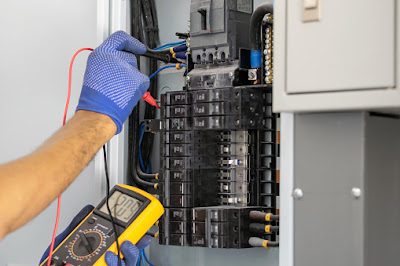 |
| Electricity Metres |
Electricity meters are devices that measure electric energy usage and are used in a variety of settings, including industrial, residential, and commercial. Electromechanical induction was employed in traditional electricity meters; however, electronic, smart, or digital meters have gained favor in recent years. Smart meters are a two-way communication alternative to traditional energy meters. They interact directly with the electrical provider, removing the need for human readings. AMR (Automatic Meter Reading) capabilities have been replaced by AMI (Advanced Metering Infrastructure) capabilities in smart meters.
Recent Happenings:
Itron, Inc., a technology company based in the United States, unveiled the EHZ-B household smart meter for utilities and cities in Germany in March 2021. The eHZ-B smart meter is designed with sophisticated capabilities to aid Germany's energy transition to a low-carbon, dependable, and economical energy supply, as well as to equip utilities and towns with the tools they need to securely migrate to a smart and connected distribution network.
Market Drivers for Electricity Meters in the U.S.
During the projected period, the worldwide electricity meters market is expected to rise due to the increasing adoption of smart meters.
Due to increased regulatory attempts to install smart meters, smart meters have seen great penetration worldwide in recent years.
Smart meters are now being installed, with the timing varying depending on the locality. Furthermore, smart meter installation has become mandatory in the European Union, with deployment plans defined by the Commission for Energy Regulation and other legislative agencies. Smart meters have a number of benefits, including fraud detection, safe supply, prepayment capabilities, energy savings, tariff-based energy offers, self-diagnostics, and peak consumption awareness. As a result, these factors are projected to fuel the global electricity meters market's expansion over the forecast period.
Key market players are involved in mergers and acquisitions, in order to enhance the market presence. For instance, in May 2018, Schneider Electric SA, an energy management company, acquired L&T’s electrical and automation business.
Key market players are involved in mergers and acquisitions, in order to enhance the market presence. For instance, in May 2018, Schneider Electric SA, an energy management company, acquired L&T’s electrical and automation business.



0 Comments